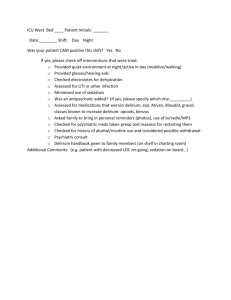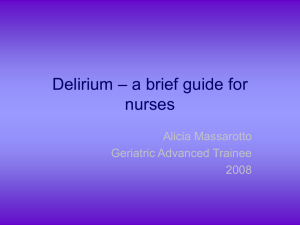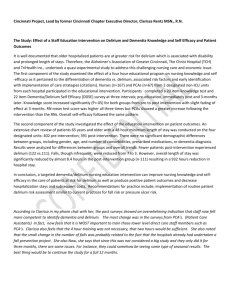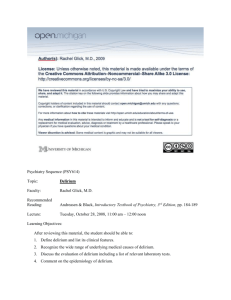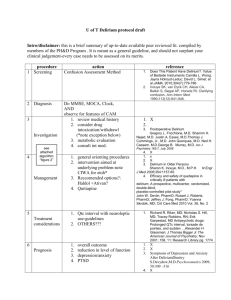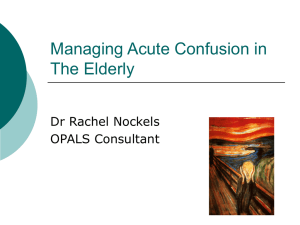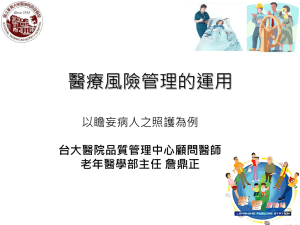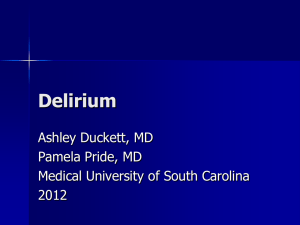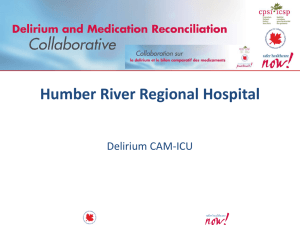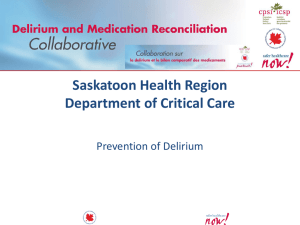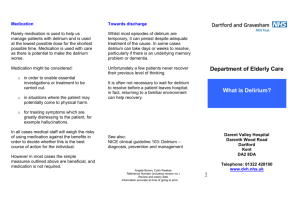BPSD Series Delirium and Medical Issues
advertisement
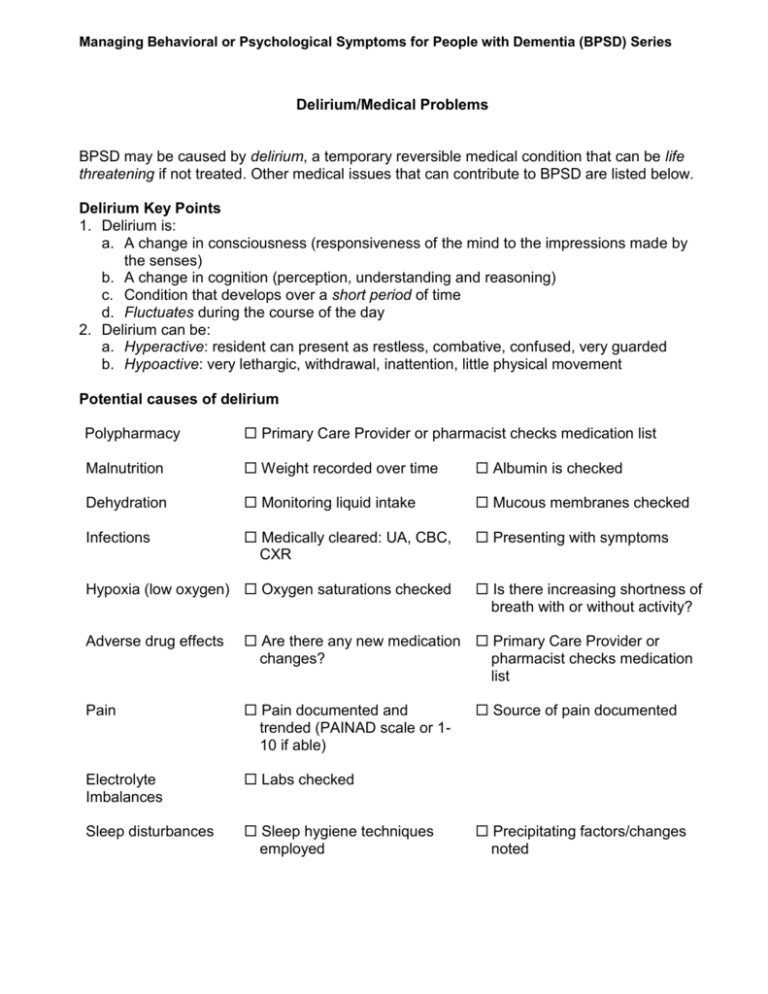
Managing Behavioral or Psychological Symptoms for People with Dementia (BPSD) Series Delirium/Medical Problems BPSD may be caused by delirium, a temporary reversible medical condition that can be life threatening if not treated. Other medical issues that can contribute to BPSD are listed below. Delirium Key Points 1. Delirium is: a. A change in consciousness (responsiveness of the mind to the impressions made by the senses) b. A change in cognition (perception, understanding and reasoning) c. Condition that develops over a short period of time d. Fluctuates during the course of the day 2. Delirium can be: a. Hyperactive: resident can present as restless, combative, confused, very guarded b. Hypoactive: very lethargic, withdrawal, inattention, little physical movement Potential causes of delirium Polypharmacy Primary Care Provider or pharmacist checks medication list Malnutrition Weight recorded over time Albumin is checked Dehydration Monitoring liquid intake Mucous membranes checked Infections Medically cleared: UA, CBC, CXR Presenting with symptoms Hypoxia (low oxygen) Oxygen saturations checked Is there increasing shortness of breath with or without activity? Adverse drug effects Are there any new medication Primary Care Provider or changes? pharmacist checks medication list Pain Pain documented and trended (PAINAD scale or 110 if able) Electrolyte Imbalances Labs checked Sleep disturbances Sleep hygiene techniques employed Source of pain documented Precipitating factors/changes noted Managing Behavioral or Psychological Symptoms for People with Dementia (BPSD) Series Alcohol withdrawal Date of last drink noted and communicated with Medical Provider along with usual amount and frequency of alcohol consumption Constipation Frequency and character of bowel movements recorded Food/medication intake monitored for constipation causing foods/medications Urinary retention Frequency of urination and urine output monitored Examined by MD for causes, i.e., UTI, obstructions, medications, nerve damage Other Medical Problems Contributing to BPSD Vitamin B12 deficiency Abnormal thyroid levels Depression Other untreated psychiatric disorders such as bipolar, schizophrenia Liver failure Kidney failure Factors to Minimize Delirium and Medical induced BPSP 1. “Self environment”: optimize ability of resident to use all their senses. Examples: make sure their glasses are clean, hearing aids are in and in good working order, be consistent in setting up their environment, be conscientious about physical limitations and assist as needed. 2. Refer to “NON-Drug Approaches”. Incorporate methods ongoing that work for the resident.
